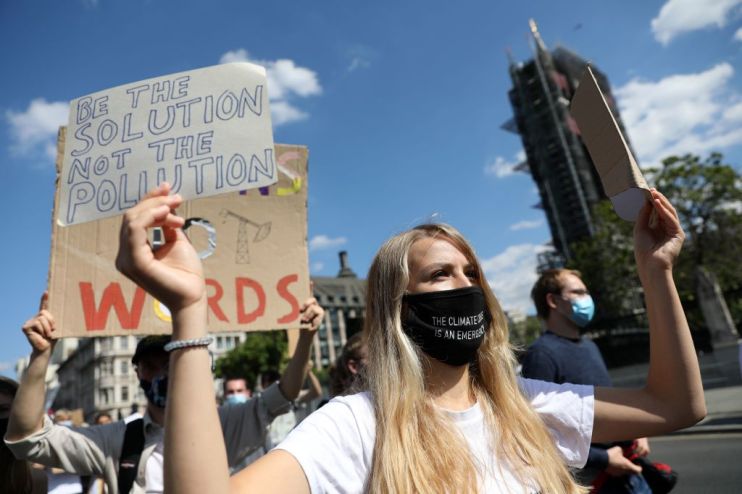Climate-related risk becomes leading concern for business leaders

Global business leaders are becoming increasingly concerned about the risk climate change poses to business.
The World Economic Forum’s risk report shows that the top risks remain related to economics, with unemployment the main concern for business executives.
Previously the risk of infectious diseases had been underestimated but have inevitably jumped 28 spots and it is now the second most recurring risk.
But extreme weather events, such as the Australian and Californian bushfires at the start of the year, alongside mounting evidence of global warming, have catapulted climate concerns up the list.
The World Economic Forum’s report surveyed 12,000 global business leaders and pulled 30 risks, including terrorist attacks, extreme weather events and state crises.
Even as businesses scrambled to insulate themselves from the pandemic as best they could, a number of firms committed to new climate initiatives indicating how seriously it is now being taken.
In January Larry Fink, the chief executive of Blackrock, announced the asset manager would place environmental sustainability at the core of its strategy.
It pledged to lower its exposure to fossil fuel companies following demands by environmental campaigners.
And earlier this year one of the world’s biggest oil majors BP set a net zero carbon target for 2050.
In the UK, business leaders consider climate change a bigger risk than unemployment, which does not feature in the top five risks, despite stark warnings from economists.
Instead, 30 per cent business leaders consider extreme weather events a risk while just over a quarter – 27.6 per cent – fear a failure of climate change adaptation.
Climate concerns have pushed terrorist attacks and failure of national governance out of the top risks for business UK leaders.
Peter Giger, chief risk officer of Zurich Insurance said: “Covid-19 is distracting us from certain long-term risks that will be around long after the current crisis is resolved. But the pandemic is also having the positive effect of leading many to reassess priorities.”
“This, I hope, will ensure that businesses advance their risk resilience strategies and result in decisive and impactful action to combat existential risks like climate change.”